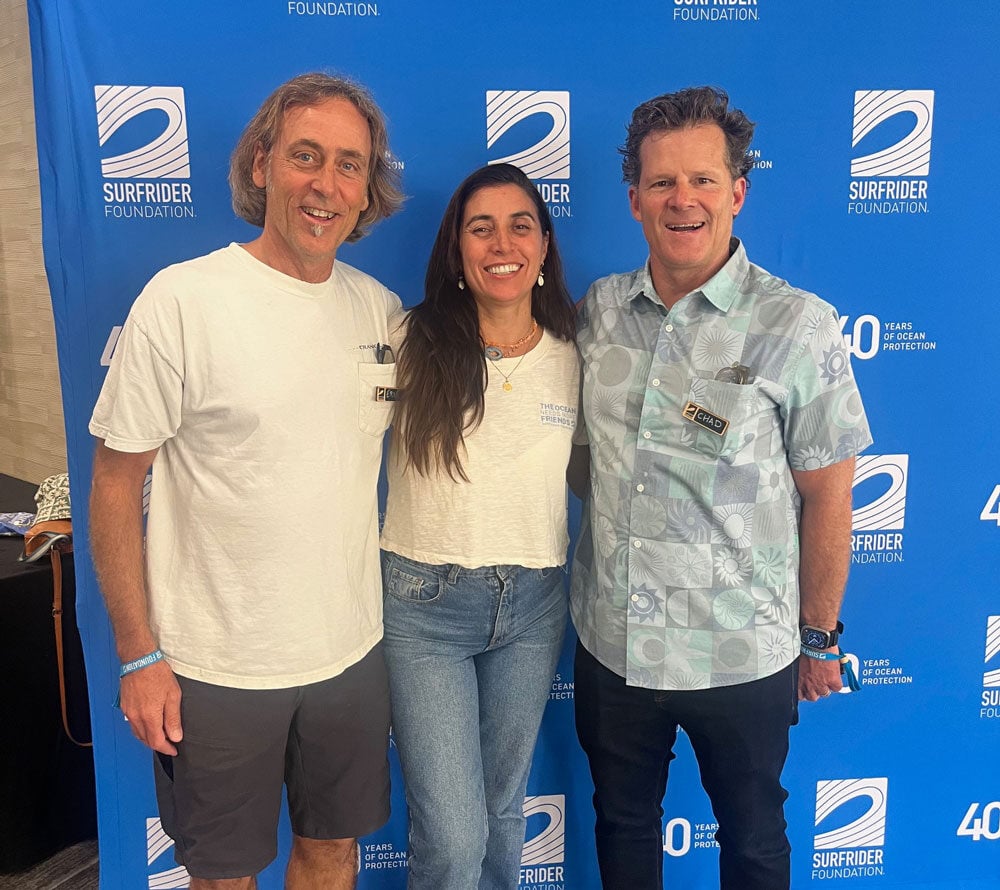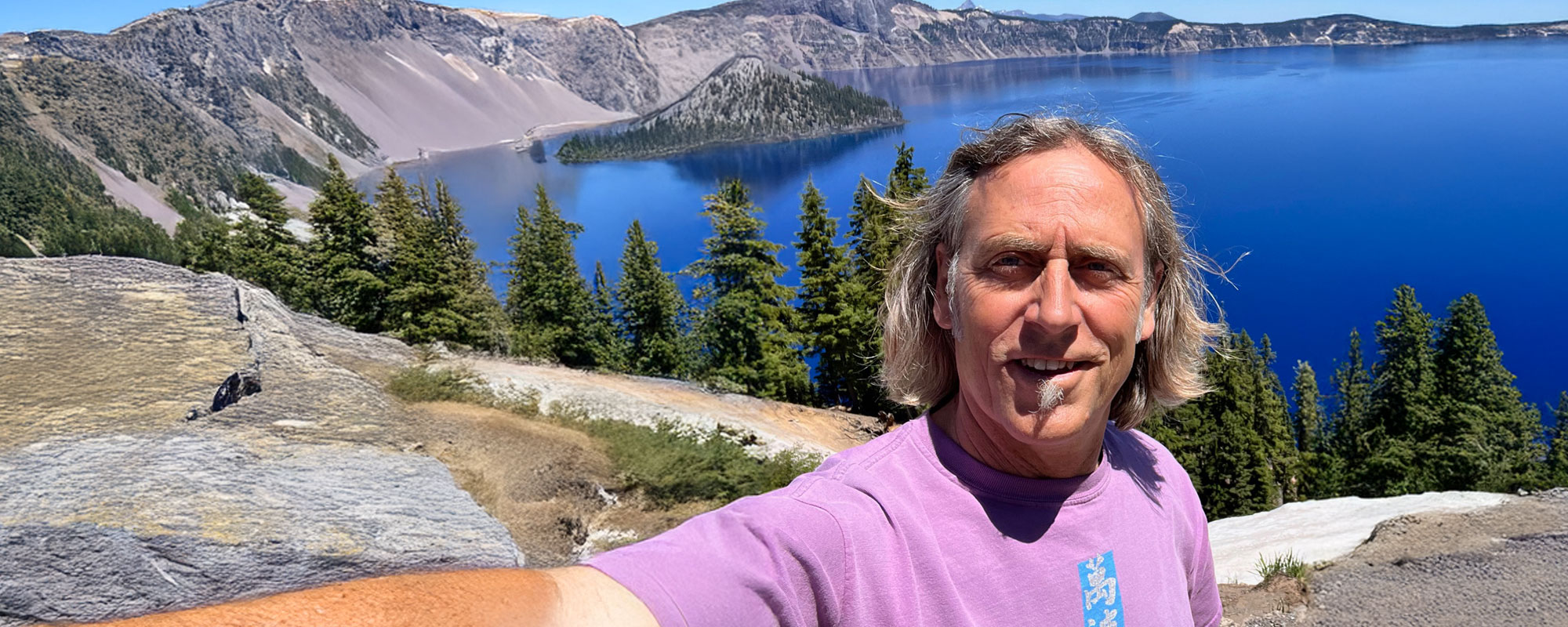
What is your current role with the Surfrider Foundation?
I am currently the lead volunteer for the Ocean Friendly Restaurant and Ocean Friendly Hotel programs.
When and why did you choose to get involved?
I jumped in with Surfrider, towards the end of the pandemic, after seeing all the food industry packaging I was using in the take-out food I was ordering. As a surfer, diver, and ocean swimmer, I was noticing so much more plastic in the parking lots and at the high-tide line. Still today, there are truly scary amounts of trash and plastic coming down our storm drains and are just being left and littered on our beaches.
I was already a Surfrider member and got an email about the monthly LA Chapter meeting, so I showed up. Eugenia Ermacora, the chapter manager, and Ben Kay, an incredible spokesperson and activist for our beaches and ocean, both spoke. I learned about all the amazing work that Surfrider does, including the Ocean Friendly Restaurants program and new Ocean Friendly Hotels program. Getting out in front of all the plastic going into our ocean, landing on our beaches, and stopping it at a major source makes a lot of sense to me.
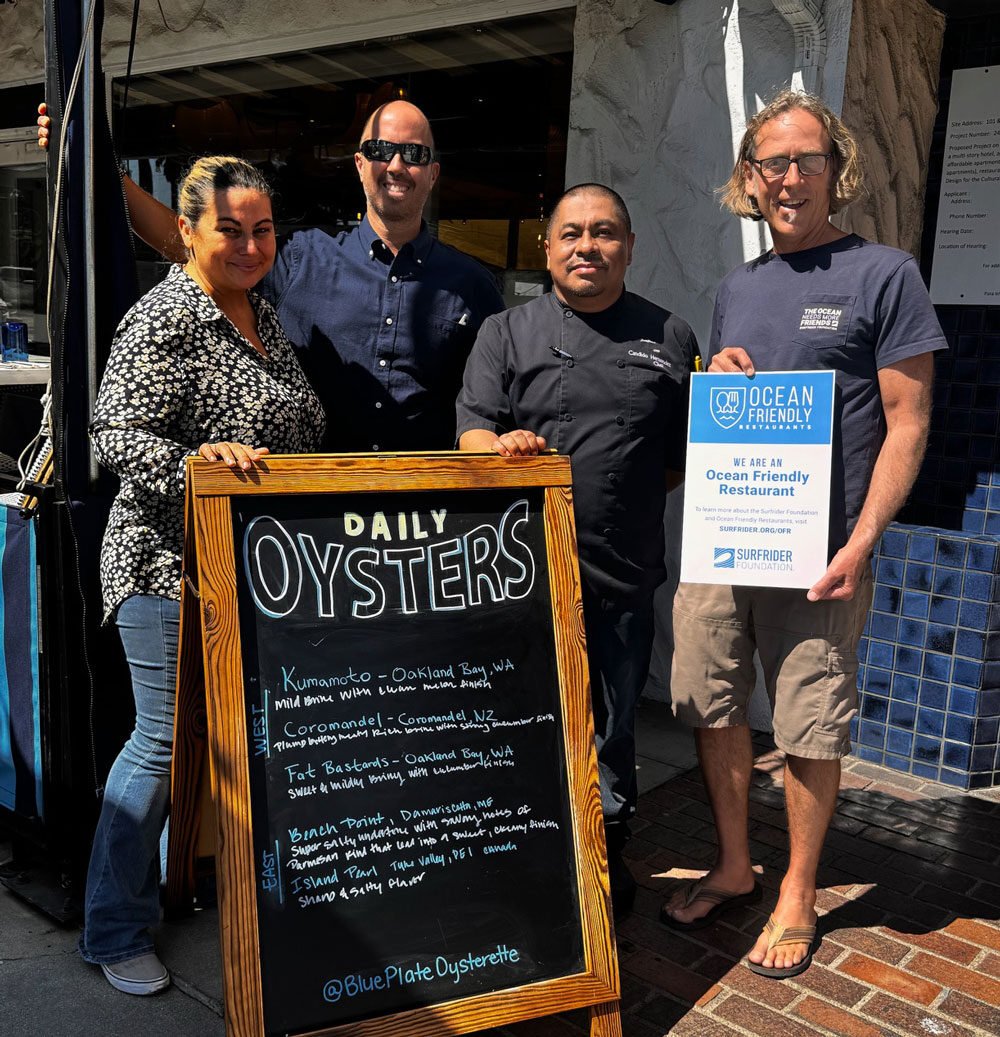
How has increase in single-use plastics on the beach changed in your lifetime?
I grew up in Malibu in the '70s near Zuma and all we used to see at the high-tide line was kelp, driftwood, and some occasional lobster shells. Now, it’s all plastic, utensils, cups, chunks of polystyrene, and straws. The trash spans from our Santa Monica beaches to 50 miles out at sea at the Channel Islands.
Plastic and polystyrene are pervasive and now everywhere in the ocean environment. I was just lobster diving this fall and pulled out a 30-gallon, plastic bag half buried in the sand at 20 feet deep with sea grasses already growing all over it. The fish, birds, and humans are all ingesting this stuff. I’ve witnessed fish and birds all caught up in it too many times.
What Surfrider projects have you been involved with? How have these projects impacted your community?
My main involvement is with the Ocean Friendly Restaurants and Hotels programs. Our OFR and OFH partners have a huge impact and stop plastic at the source. We have seven main criteria to be certified as Ocean Friendly, including only reusable foodware onsite, paper or natural straws only, no polystyrene, and no plastic bags.
We also highlight our OF partners on our social media, sharing with the community all they are doing to help with the plastic pollution issues here in LA. We’re like a 'good housekeeping' stamp of approval, and a great way for our Ocean Friendly partners to let the community know all they are doing. The end result is appreciated by everyone.
I was also involved in the Capital Hill Day campaign where hundreds of Surfrider volunteers across the country reached out to local leaders with specific 'asks,' like supporting the BEACH Act that funds water testing along our coats and programs to advise us when it’s not safe to go in the water. We also brought on sponsors for the Plastic Free Pellets Act to stop the plastic industry from spilling plastic from production and transport into the environment. Hill Day felt really impactful as well. Legislating changes in plastic use is key, and it was powerful to share my experiences around the ocean and all the changes I’ve seen in the last 50+ years.
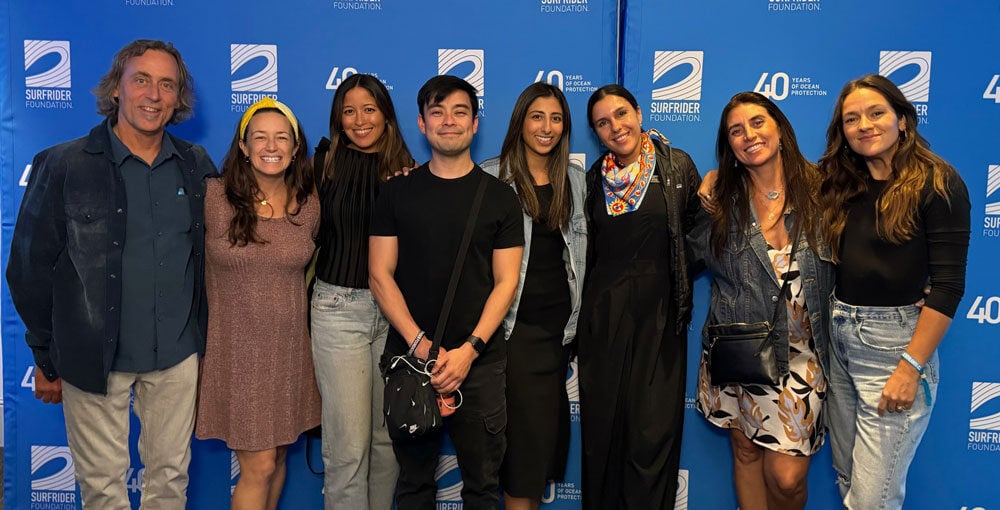
Do you have any personal experiences or campaigns/issues where the social justice and environmental movements have intersected?
Hill Day and our other legislative efforts I’ve been involved with wrap social justice and environmental issues together. Without beach access, people from all walks of life will not be able to reach the sand and waters of Southern California. I live West LA nowadays, but growing up near the beach basically put saltwater in my veins. We need to continually work on maintaining and expanding access to our coastline for everyone through legislative efforts.
What can Surfrider do to foster an inclusive and welcoming environment?
I came into ocean activism through beach cleanups and believe it’s the way to get everyone from everywhere involved. It feels good to be a part of cleaning the beach for all the creatures, including ourselves. When people find out that trash gets flushed to our beaches from over 50 miles inland, they better understand that it’s all interconnected. Just because you don’t live at or near the beach doesn’t mean you can’t have an impact.
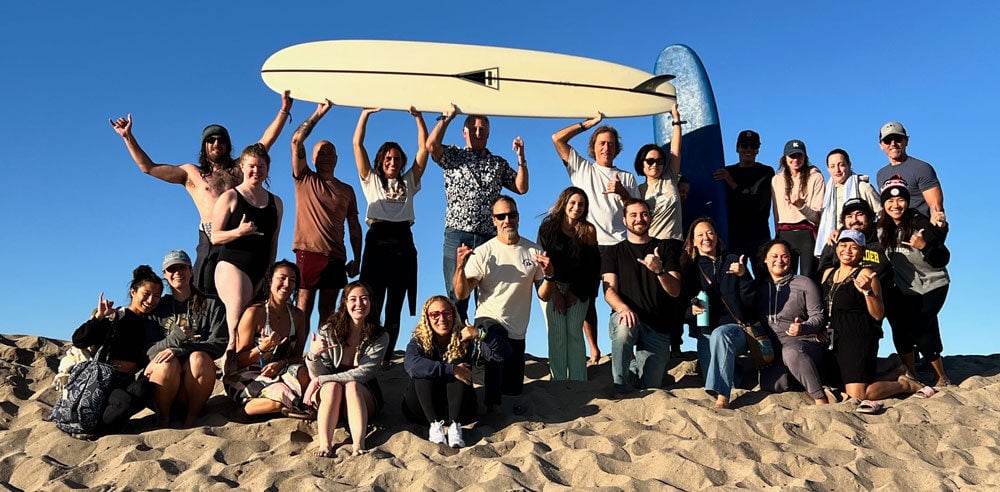
What has been the highlight of your Surfrider experience?
So far, it was Surfrider's 40th Anniversary Summit this past October. Hundreds of Surfrider volunteers from across the world came together to learn and share their experiences.
Chad Nelson, our CEO, sat down in a fireside-chat format with some seriously inspiring people including Ryan Gellert of Patagonia, surfer/activist Greg Long, and marine biologist/activist Ayana Johnson. Meeting and getting to know other volunteers from here in California to Australia and Africa was amazing. We even had some business owners that are part of the Ocean Friendly programs involved, including Kurt Bjorkman from The Ranch in Laguna Beach and Jocelyn Pierce from Mayflour Restaurant in Essex, MA.
Thanks so much Eric! Is there anything else you would like to add?
Ultimately, Surfrider has allowed me to be involved with an amazing group of people who also care deeply about the environment and are committed to cleaning up a bit of the mess we’ve created for ourselves. For that, I am very grateful.
